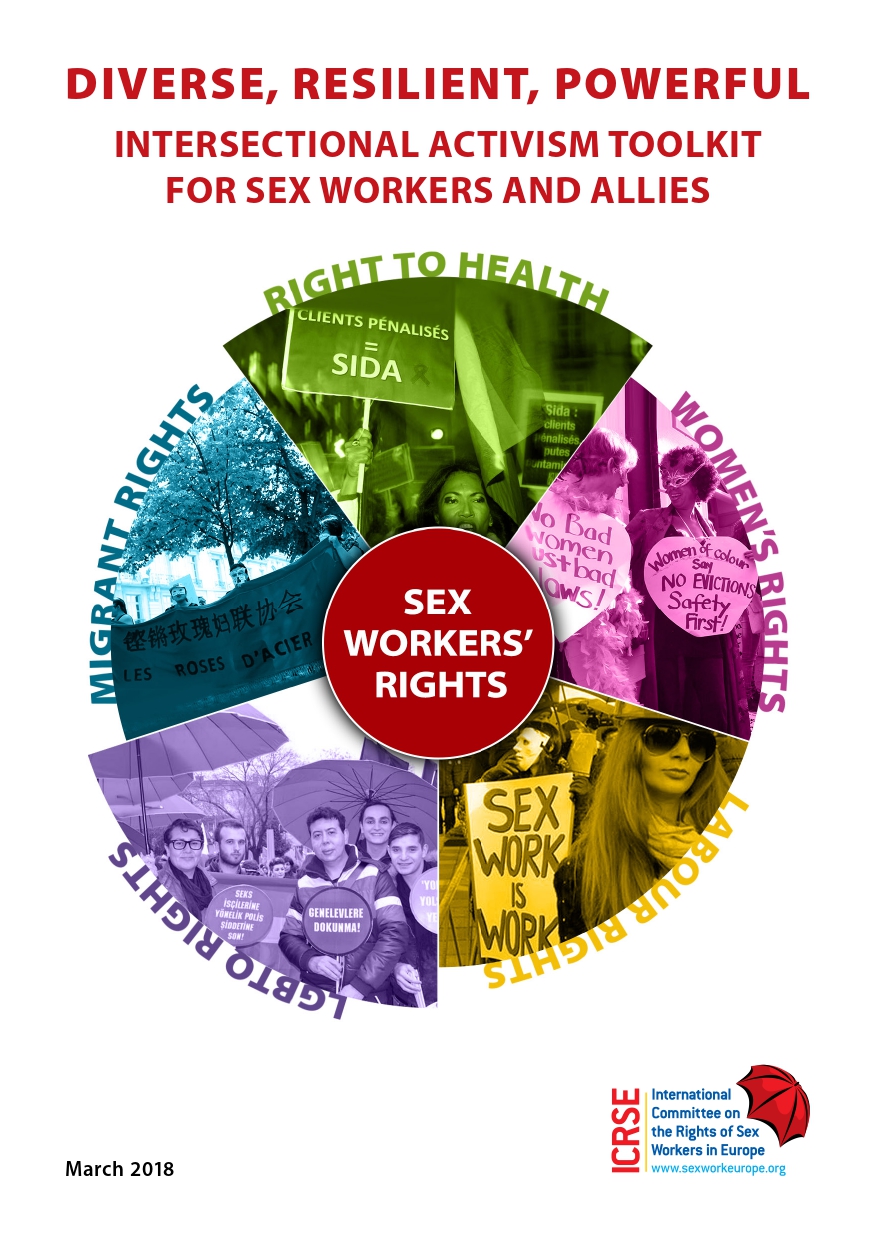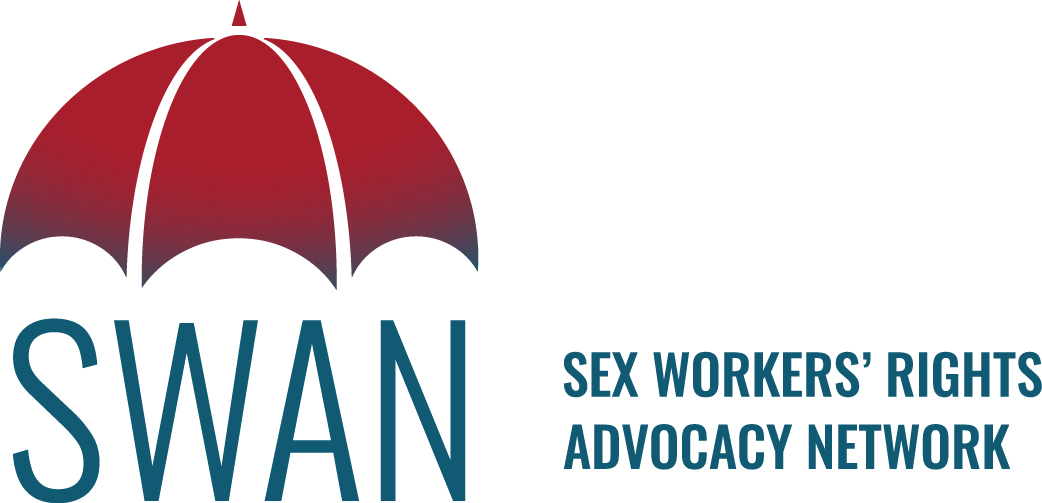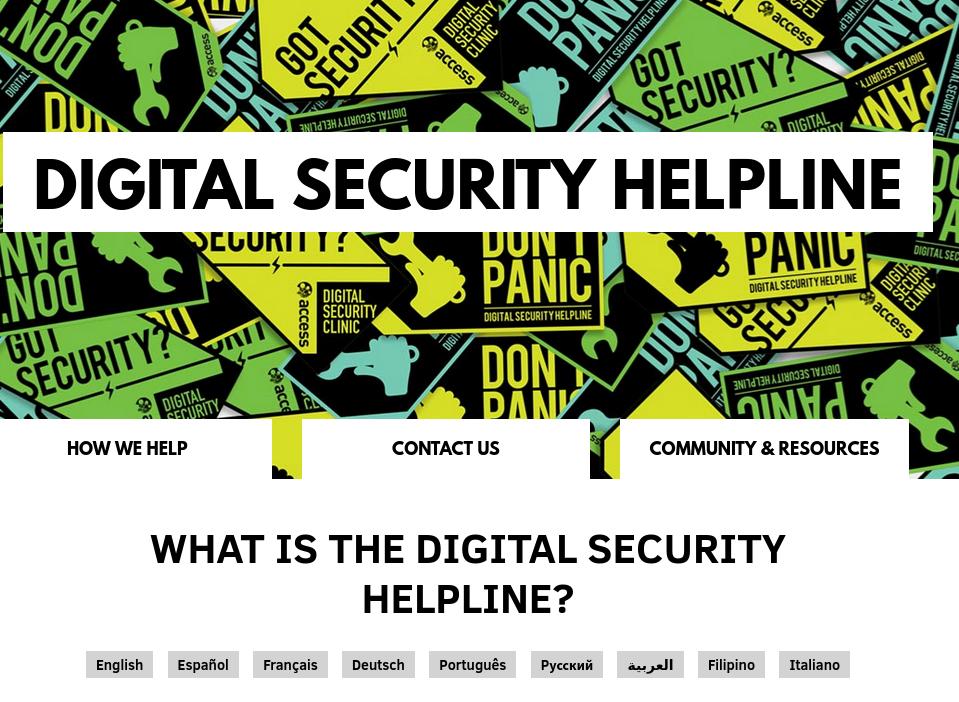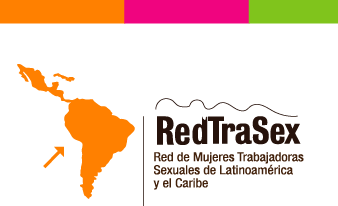As the world has been shaken by COVID-19, those most marginalized, stigmatized, and criminalized have been pushed further into poverty, to the grave detriment of their health and human rights. Sex workers have not only been seriously impacted by the COVID-19 pandemic, but also by governments’ emergency responses that, in many contexts, have been punitive, overbroad, and/or discriminatory. Amnesty International urges governments to take targeted action to address the disparate impact of COVID-19 on sex workers and to protect their health and other human rights, including through tackling the key issues of concern that sex workers have raised since the outbreak of COVID-19, such as their
exclusion from social and economic support schemes, increased criminalization and lack of protection from violence, and diminished access to health services.
Publicaciones y Herramientas
Hemos organizado nuestra creciente biblioteca de publicaciones y herramientas para servir mejor al movimiento de lxs trabajadorxs sexuales, a los financiadores y a lxs aliadxs. Hemos destacado los temas clave que se cruzan con nuestro trabajo, incluyendo la concesión participativa de subvenciones, los buscadores de donantes y otros trabajos aportados por las redes regionales, los financiadores de lxs trabajadorxs sexuales y otras organizaciones que apoyan los derechos de lxs trabajadorxs sexuales.
Hay casi 200 publicaciones y herramientas enumeradas, hemos confiado en las herramientas de traducción en línea para hacerlas más accesibles en otros idiomas. Por favor, disculpe cualquier error.
An e-book with a collection of articles focusing on why anti-trafficking advocates should not hesitate supporting sex workers’ rights.
This volume focuses upon three main questions:
– Why are so many anti-trafficking organisations reluctant to take a clear position on the status of sex work?
– What are the main effects of fence-sitting upon politics and policy?
– What would encourage anti-traffickers to get off the fence and directly support sex workers’ rights?
«The Beyond Trafficking and Slavery editorial team is not on the fence. We strongly favour and support sex workers’ rights.»
Ver
Este conjunto de herramientas resume cada documento informativo de intersección desarrollado en los últimos tres años sobre los derechos de los trabajadores sexuales como derechos de migrantes, derechos de las mujeres, derechos LGBTQ, derechos laborales y derecho a los problemas de salud. Además incluye una infografía sobre trabajo sexual marcos legales y recomendaciones a las trabajadoras sexuales y Aliados sobre cómo construir movimientos interseccionales de justicia social, inclusive de todas las trabajadoras sexuales.
VerLa lista Hack: Hustler Lessons From Community – Grantmaking By and For Sex Workers (Fondo Paraguas Rojo, Círculo de donaciones de trabajadorxs sexuales en el Fondo de la Tercera Ola, UHAI-EASHRI). This checklist was created to share some hacks (or creative work-arounds) that support funders to be more responsive to grassroots grantee experiences and needs.? It was first presented at the 2019 Los financiadores, preocupados por el sidaFCAA (en inglés)) en la sesión plenaria – Hacks from the Frontline: Estrategias de los profesionales del sexo para una financiación creativa y sensible al VIH.
VerA reference brief by OSF that «aims to clarify terms and illustrate examples of alternatives to the use of criminal law as a response to sex work.»
Ver
«The lives of LGBTQ sex workers in Central Europe, Eastern Europe and Central Asia are impacted by many hardships, including precarious living conditions, various forms and levels of criminalisation and discrimination as well as violence and human rights violations. […] This briefing paper developed by SWAN aims to fill the gap in knowledge about LGBTQ sex workers in Central Europe, Eastern Europe and Central Asia.» Available in English and Russian.
Ver
In 2020, Front Line Defenders issued an extensive report highlighting LGBTIQ+ and Sex Worker Rights Defenders At Risk During COVID-19. The release of the report was also documented by journalists, including The Hill. The report found that: «[i]n every country we visited, despite the risk of arrest, sexual violence and surveillance sex worker activists continue to insist on their communities? right to assemble and to exist.»
Ver
La Línea de Ayuda de Seguridad Digital de Access Now trabaja con individuos y organizaciones de todo el mundo para mantenerlos seguros en línea. Si usted está en riesgo, podemos ayudarle a mejorar sus prácticas de seguridad digital para mantenerse fuera de peligro. Si ya está bajo ataque, proporcionamos asistencia de emergencia de respuesta rápida. Disponible en inglés, francés, español, ruso.
Ver

«The Advancing Human Rights initiative tracks the evolving state of global human rights funding. It is a collaboration between Candid and Human Rights Funders Network, in partnership with Ariadne and Prospera. Our aim is to strengthen funders’ decision-making, promote collaborations, and improve the effectiveness of human rights philanthropy.»
Ver
«One of the main findings, as detailed in the recent FCAA and Elton John AIDS Foundation “Converging Epidemics: COVID-19, HIV & Inequality” report, was that HIV-related intermediary funders are best positioned to provide flexible, strategic support for the most critical needs of community members and community-led groups working at the intersection of HIV, human rights and racial justice.
The purpose of this follow-up briefing paper is to help make the case for greater investment in HIV-related intermediaries, particularly those that are community-rooted and community-led.
It explores their role, added value and impact, and key challenges and needs. It also looks at the strategic and practical considerations that donors who currently support intermediaries take into account when developing relationships with their intermediary partners.
Finally, this briefing paper also offers new benchmark data to contextualize the level of HIV-related philanthropy moving to intermediary and community-rooted funding organizations.
We hope that the case studies and insights from interviews conducted and data analyzed for this paper will encourage donors — whether public or private, large or small — to invest in community-rooted funders and/or adopt some of the community-rooted practices described within.
A series of recommendations for putting this into practice is included at the conclusion of this briefing paper.»
Read the full report.
Read the individual report case studies
Initiative Sankofa d’Afrique de l’Ouest
Southern AIDS Coalition and the Contigo Fund
Global Network of Young People Living with HIV and Advocates for Youth
Red Umbrella Fund
Read the accompanying report: Converging Epidemics: COVID-19, HIV and Inequality

«At the time of Mama Cash?s founding, prostitution and pornography were most often interpreted by members of the women’s movement solely as forms of oppression and the exploitation of women. (During the 1980s, people mostly used the word «prostitute». After the publication in 1987 of Carol Leigh?s anthology Sex Work: Writings By Women In The Sex Industry, the broader term «sex worker» gained in popularity within the women?s rights movement). Mama Cash?s position was that women in the sex industry have the same right as all other women to sexual and economic self-determination, an independent and legally accepted existence and protection against discrimination and violence. This position has always guided Mama Cash?s activities and has led her to support both Dutch and international sex workers’ rights movements. Over the years, she has managed to bridge the gap between activists in the field and the international donor community and has continued to be a leader in the discussion about sex work.»
Ver
The investigation was presented on December 9, 2020, to commemorate the International Day of Human Rights Defenders and International Human Rights Day. It is a complete mapping of sex work legislation and sex workers’ political participation in the region.
Ver
2022 report «Myth-Busting the Swedish Model: The Evidence Debunking 10 Key Claims of Client Criminalisation» which find that «the benefits of the Swedish model by its proponents are not supported by the evidence. Sex workers are not decriminalised – a finding corroborated by an Amnesty International report on the situation in Ireland – and there have been rises in cases of human trafficking, with victims of this trade made even more vulnerable within a system of criminalisation.» This finding is supported Swedish sex worker-led organisation Fuckf?rbundet (member of ESWA and NSWP) in their 2019 report Twenty Years of Failing Sex Workers.
VerRed Umbrella Fund Coordinator Paul-Gilbert Colletaz writes, » Sex workers have suffered under the pandemic because most are excluded from both private and public support. Donors can change that.»
Ver
The paper covers various areas of law and law enforcement practices that disproportionately impact sex workers, including immigration laws, policing of public spaces, anti-LGBTQ laws, HIV criminalisation and religious codes. A Community Guide is also available.
Ver